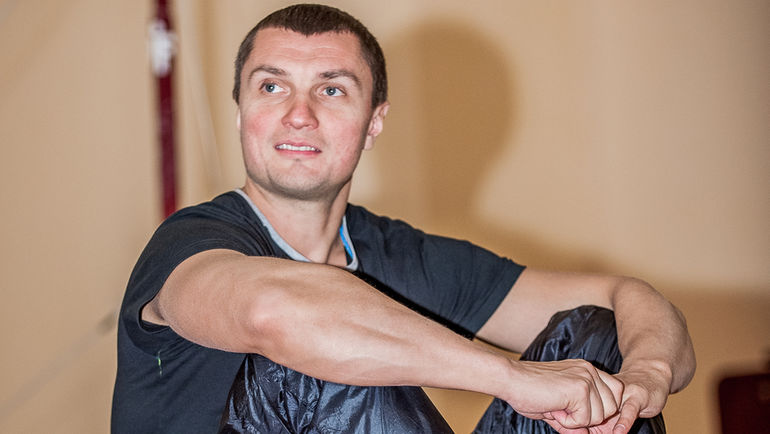Pravda-News talked to Sergei Starkin, the personal coach of Aliya Mustafina and Denis Abliazin, about coaching.
Starkin talked about not having a lot of choices when it came to being involved in gymnastics – a son of two coaches, he was raised in the gym:
“I inherited this profession from my parents – Valeri Georgievich and Galina Petrovna. They always took me with them to work because there was no one to leave me at home with. So, basically, I couldn’t not start doing gymnastics. But I guess this was my calling because not once in my life I regretted the path I’ve chosen”.
Starkin got a degree in physical education at a local university but he mostly learned on the job, in the gym, with his father helping him a lot. He never really expected to coach famous athletes like Abliazin and Mustafina:
“Preparing a medal-winning athlete is a lottery: one chance per million. Unfortunately, this process can’t be a production line. It’s a bit similar to gold mining: in order to get grains of gold, you have to go through a lot of sand. First of all, you have to find a talented pupil. There are many girls and boys like that but only a few win medals. A whole system of specialists and schools works in order to prepare them. The final victory is not a result of two people, the coach and the athlete, it’s a result of the whole chain”.
Starkin also talked about not getting too upset about losing.
“We all understand well that our ultimate goal is to win a medal. But if it won’t happen, the sky won’t fall on earth, right? We’re not robots and we can’t take first places all the time. It’s not right to focus on the loss and get depressed about it. If you fall, you always have to get back up – then you’ll make a step forward. Otherwise, you’ll stay in the same place”.
On whether talented gymnasts are hard to work with:
“All of us are no angels, there are pluses and minuses. Sometimes we have to compromise and with time the work resembles more of a partner relationship and not a relationship between a boss and an employee. No one is higher up than another one. That’s the foundation”.
Starkin does not agree that the coaches don’t get enough attention and their work is thankless:
“I wouldn’t say that the coach is in the shadow of their athletes. Of course, the names of the athletes are known more, but it’s understandable – they’re on the floor, the cameras are watching them, while the coach is behind the scenes. I find it fair that the main attention is aimed at the athletes. Regarding the definition of “thankless” – people mean the final result here. Everyone’s working towards big victories but only a few reach that goal. But it doesn’t mean that the rest are bad coaches. As I was saying, there have to be too many coincidences for that. A great example is Denis. Before him, only Alexei Nemov was winning Olympic medals in such numbers. He was born in 1976 while Denis was born in 1992. Do you understand how rarely athletes of such level appear? But during that period of time, there was a huge number of coaches working in the country. And all of them poured their soul into their pupils”.
Photo: Andrey Malyshkin for Sport Express
Support Gymnovosti on Patreon from only $1 a month and help us bring to you even more awesome gymnastics coverage!



